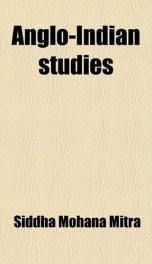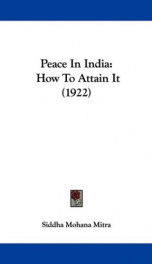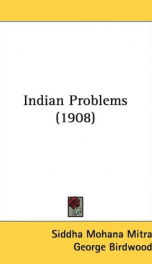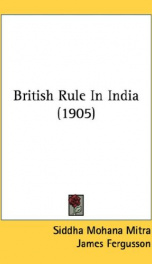anglo indian studies

Purchase of this book includes free trial access to www.million-books.com where you can read more than a million books for free. This is an OCR edition with typos. Excerpt from book: ANGLO-INDIAN STUDIES CHAPTER I CHRISTIAN AND HINDU WAR ETHICS The Balkan War gives much food for reflection to friends of peace. Will the world ever submit to international arbitration ? Those acquainted with only Western history may perhaps find consolation in the thought that regular and consistent Occidental endeavours to reduce cruelty and bring war within the domain of ethics are only about fifty years old, and therefore there is high hope of a future when the nations will live as united members of a large family. The Conferences summoned during the past fifty years to discuss the laws of peace and war are the development of the principles set forth in the seventeenth century of this era by the great Dutchman Grotius, whose De Jure Belli ac Pads is generally accepted as the foundation of the Western science of international law. Grotius was born in Holland in 1583, and he therefore passed the prime of his life amid the storm and stress of war. His relation to the Treaty of Westphalia chapter{Section 4(1648), which closed the Thirty Years' War in Germany and the Eighty Years' War in the Netherlands, is ably treated by Walker. On July 4, 1899, the American delegates to the Hague Peace Conference placed a wreath of oak and laurel leaves wrought in gold and silver on his tomb, thus publicly acknowledging him as the great forecaster of the principles the West was met to discuss. But those who know the literature and history of my country, India, and remember how it anticipated Grotius by about thirty centuries, how it forestalled the Conferences of Geneva (1864, 1868, and 1906), St. Petersburg (1868), Brussels (1874), and the Hague (1899 and 1907), how its warriors and ministers, about fifteen centuries before the Christian Era, made rules of warfare equivalent to much...
Users who have this book
Users who want this book
What readers are saying
What do you think? Write your own comment on this book!
write a commentif you like anglo indian studies try:
Other books by this author
Do you want to exchange books? It’s EASY!
Get registered and find other users who want to give their favourite books to good hands!





